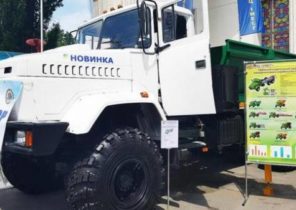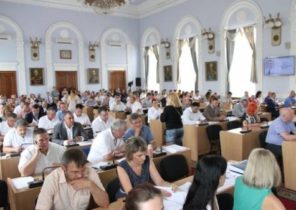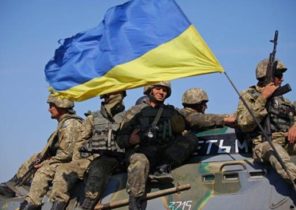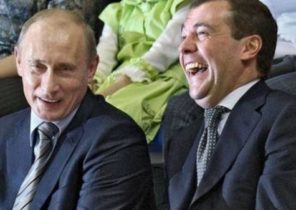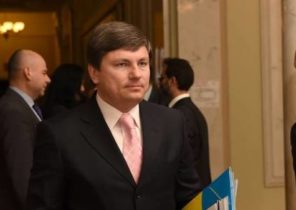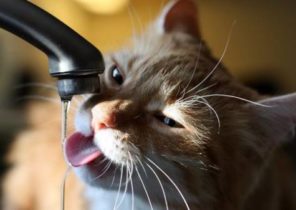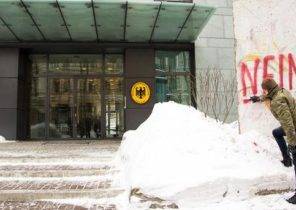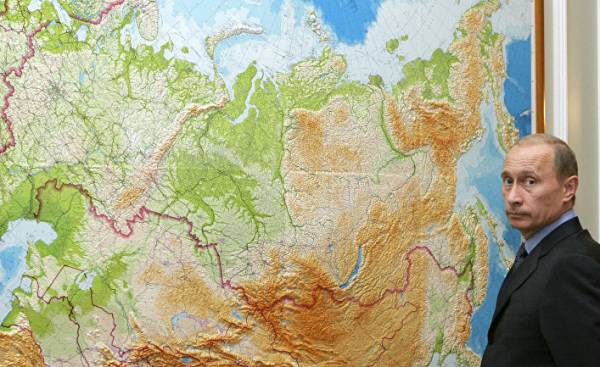
Shortly after winning the election, Putin made the first as President-elect visit to London, where Prime Minister Tony Blair has shrugged off criticism of Putin’s violations of human rights in Chechnya. Putin “speaks our language reforms,” said Blair at a press conference, during which the policy turned to one another, “Vladimir” and “Tony”. When BBC reporter asked whether Russia could join NATO, Putin replied: “I don’t see why not.” A few months later, he began to close the costly naval base of Russia in Vietnam and Cuba, the remaining from Soviet times (the process was completed in 2002).
That year Blair and Putin met in total five times, and in November even drank vodka in one of the Moscow cafes. As the warmth of the Kremlin reacted to George Bush when he became President of the United States in 2001. Having studied all the nuances, Putin as a former KGB officer, did not water the Bush vodka, and told the amazing story of belonged to his mother the cross, which miraculously survived the fire at his country house. Being a fervent Christian, the American President was impressed and said: “I looked this man in the eye. I found him very open and trustworthy. I looked into his soul.” A new Russian leader seemed open to cooperation, interested in maintaining contacts with other countries and striving to be part of liberal world order.
Sixteen years later, Putin’s government has blamed the hacker attack with the purpose to influence elections in the United States and France, NATO was perhaps the biggest enemy of Russia, and the reopening of the closed Imperial military bases and of the question. After spending years bragging they brought to the Russian people for stability and prosperity, Putin runs the country, which only recently was able to get out of a two-year recession. Although the economic condition was triggered mainly by the fall in oil prices, economic sanctions and the EU, benefit Russia too has not brought. Among these restrictions, imposed after the annexation by Moscow of the Crimea, a ban on travel abroad of a number of the closest allies of the Russian leader.
So how did we get here? Putin turned against the West due to two factors, says Mikhail Zygar, the author of the book “the Kremlin’s men”, an unusual look inside the powerful factions of the Kremlin in the first half of the decade of Putin’s rule. The basis Zygar put a lot of informal interviews with senior Kremlin leaders, trying to convince some that the book will become an important historical document, which the Russians will be in a hundred years.
First, says Zygar, Putin’s position was exacerbated by the fact that Bush never thought of Russia as a superpower. “From the point of view of the Bush administration, Russia could become a normal European country, like Denmark’s largest, says Zygar, the founder of Russia’s only independent TV channel “Rain”. For Putin it was a humiliation; he wanted to be regarded in Russia as a superpower, a kind of Empire. Not as great of Denmark, but as a democratic Soviet Union.”
The mantra of Bush’s “democracy promotion” translated Putin’s discharge of offended into the category of disgruntled, says Zygar. In the post-Soviet space, which Moscow considers part of its rightful sphere of influence — Ukraine, Georgia and Kyrgyzstan — was suspicious of the wave of “color revolutions” in defense of democracy. During the 2004 elections in Ukraine, the Kremlin has invested in the candidacy of Viktor Yanukovych, although a significant portion of those funds were stolen moonlighting in Ukraine, the Russian masters of media manipulation, says Zygar. When the “Orange revolution” and Yanukovych lost, these advisers could not admit that he had pocketed a bunch of money, arguing instead that the loss was caused by the agitation of the EU and the USA.
“Putin then, probably, the first thought that the EU and the us not only didn’t treat him with respect as a partner, but could be dangerous to support his enemies and try to provoke in Russia, a popular uprising or a peaceful revolution,” writes Zygar.
This conviction grew clearer as soon as NATO expanded to the East, but never been invited into their ranks Russia. Adding fuel to the fire, the Alliance took Poland and the Baltic States, drew close to Russia’s borders — such as the Russians according to them promised, would never have happened during the negotiations during the Gorbachev era.
Then, after spending four years as Prime Minister, Putin announced that in 2012 will return to the presidency. Tens of thousands of protesters went out several times on the streets of Moscow, nothing caused such disapproval by the Russians as much as the collapse of the Soviet Union. One of these protests was the result of the parliamentary elections in November 2011, which were identified as potentially fraudulent by the then U.S. Secretary of state Hillary Clinton.
Criticism of Clinton was the turning point of the growing mistrust between Russia and the West. Putin openly accused her of promoting the unrest. “She set the tone for some actors in our country and gave the signal, he said. They heard this signal and with the support of the US state Department began active work.”
Since Russia can’t decide whether to act to her as a destructive force against the designs of the West, trying to convert the world into the mainstream of post-Western order, or to grasp at the slightest possibility of consolidation of regional authorities, such as the annexation of Crimea. The Russians never recognized the Peninsula Ukrainian territory and return to their country triggered a wave of patriotism, which gave the Russians something you can hang on even in the face of the stalled economy.
To further understand the goals of Putin, Quartz Sigaram talked to on the phone. This interview was a bit compressed and edited for clarity.
Quartz: could you describe the worldview of Putin? What he strives for in its foreign policy?
Zygar: His ideal new world order. He wants a second Yalta; in 1944, when Roosevelt, Churchill and Stalin met in Crimea and divided the world into different spheres of influence. It became a symbol of the power of the three great powers. He wants to have power over the world and secured for him a permanent place in the terms of this order. Every time he hears from foreign partners: “it’s not what we’re doing right now, in the modern world there are no more spheres of influence”, thinks that foreign policy deceive him by pretending to be idealists and pretending that they are interested in human rights and liberal values. He believes that this is not true. Once there are no spheres of influence there, that’s why NATO still exists?
He wants to have partners who share his rather cynical and pragmatic approach; a sort of global Board of Directors, in which he would have secured a permanent place, and he could discuss any questions with the President of the United States, the President of China, and probably German Chancellor. It was assumed that such authority would be the UN Security Council, but the actions it had no effect. Why Putin supported the introduction of the new rules of the game under which it would recognize a key player.
He thinks he’s the most experienced politician in the world and the only one who can lead Russia to save her from all sorts of dangers. This was the main reason for his return to the presidency in 2012, he thought the “Arab spring” will not stop and will reach Russia. It was a classic example of his paranoia about color revolutions. He is convinced that apart from him to save Russia from violent color revolutions, no one, and this mission is a key factor in its international politics.
— In this vision fit of hacker attacks during the elections in the United States and France, as well as the seizure of Crimea?
Is a very different thing. Not to say that there is only one of Putin’s strategy, which he has done all of this. The image of the aggressive Putin, who is trying to impose his view of the world and manipulate the American and French elections, is nothing more than the exaggeration in the style of Hollywood movies.
I believe that most of the news about Russia, articles on the Russian press and the dominance of Russia and Putin in the international news agenda somewhat exaggerated. Vladimir Putin is not an ideologue of everything that is happening on the planet beyond the control of anyone working out of the plan for the comprehensive development of the whole world. He was never a strategic player, and the geopolitical strategy he has no. He has a dream and tactics on the weapons.
Decision on Crimea was made very quickly, I got to it in his book — the plan was developed in December 2013, just three months before its implementation so that the long-term strategy can not be called rather a reaction to the Ukrainian crisis. The decision was highly emotional because of the protests provoked Putin has a sense of deja vu and disappointment of the “Orange revolution” in 2004. In December 2013, his advisers convinced him of the existence of a conspiracy by the US and that some Pro-American group tried to overthrow the regime which was then in the presidency of Viktor Yanukovych. For him it was akin to the attack on Russia.
The decision about the hacker attacks against the Democratic party and elections in France, took not the Kremlin. It simply could not be their decision, but they could be informed of developments and to liaise with those who really was behind it.
It is important to know how to pass various discussions among Russian politicians: they don’t talk about anything directly. Names, they usually do not mention, like anything that do not mention. Their discussions usually boil down to: “do what you gotta do” and “act in accordance with their responsibilities”. They don’t say phrases like “please steal four billion dollars” or “kill, please, that a journalist” or “book a hacker attack against the government.” It just can’t be; words, such things can not be solved. They can carry not officially associated with the Kremlin of the company. But there are also officials and businessmen who are using these successful actions are trying to attract the Kremlin’s attention. They seek to make money, want to get noticed.
– This interpretation of events related to hacker attacks, is fundamentally different from the West. Why do you think that ordered them not the Kremlin?
— They do not do so. Putin does not like scandals. His education, legal, and make the decision that even remotely resembled a crime, he can’t. Neither can be directly associated with any unlawful action.
He does not consider himself a bad guy, it is a law of human psychology. In real life, people rarely consider themselves to be vicious or cruel. Putin is also true — he truly believes is right, and does not consider himself an aggressive leader, a kind of Dr. Evil.
— After coming to power, Putin promised stability and prosperity. But his current strategy is economy only harm. Why the Russians are willing to put up with recession and stagnation for the sake of geopolitical ideas of grandeur?
— First, the Russian economy is not much worse than before. No recession, there is stagnation. The economic crisis was not as bad as expected at the end of 2014. The sanctions have not affected the economy; the only major factor of economic instability remains likely in the price of oil. At the same time, this strategy is the only thing the Russian government can offer to the emerging future.
During the first decades of the century the population of Russia was quite wealthy. It can perhaps be called the most “rich” decade in history, and many people were grateful to Vladimir Putin. It is, of course, is nothing — it’s all in the price of oil, but a decade is somehow be linked with it. But even then, he faced protests from representatives of the wealthy middle class: his resignation was demanded, first of all, Moscow and other big cities.
Not wishing to see the key to their political power the middle class, he turned his attention to “ordinary people” — working class people. They are much more conservative and less successful, and the idea of Russia as a superpower is much more popular among them. Many Russians have missed that since the collapse of the USSR in 1991, they felt humiliated and insulted. They lacked the feeling of grandeur of his country, and now, having regained it, they enjoy the moment.
I usually compare it to what I feel football fans, when we win their favorite team. Their life does not change, they become richer or workable, and their families are not getting any better live — they’re happy just for no reason. Feel the same way many Russians that returned a feeling of the greatness of his native country. So Putin for them — the king of football, the winner of which to be proud. When all the world media called Putin the most powerful man in the world, a man who manipulates elections in the United States and France, a man who controls the us President — to them the best news ever. They feel happy without becoming more successful, wealthier or healthier. But it is their psychology.
— For them it is more important than economic success?
— No. Sooner or later it’s over. The economy is not in such bad condition; a sense of Russia’s greatness still too fresh to ensure Putin’s maximum popularity for a long time. Six months or a year — he will probably be enough to secure re-election in the elections in March next year — but always in any case will not continue.
Max de Haldevang writes about the geopolitics of the Quartz. It covers the events around the administration of the tramp and its impact on international Affairs. Was a correspondent for Reuters in Mexico city and London, the newspaper the Moscow Times in Russia, and NBC at the Olympic games in Rio de Janeiro and Sochi. Speaks Russian and Spanish, holds degrees from Cambridge and Columbia universities.
